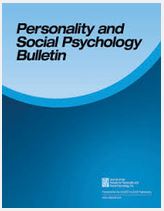The Association Between Empathy, Neurohormones and Aggression
[Source: Medical News Today]
 Empathy is typically seen as eliciting warmth and compassion – a generally positive state that makes people do good things to others. However, empathy may also motivate aggression on behalf of the vulnerable other. Researchers at the State University of New York at Buffalo, examined whether assessed or elicited empathy would lead to situation-specific aggression on behalf of another person, and to explore the potential role of two neurohormones in explaining a connection between empathy and aggression. The study is published in Personality and Social Psychology Bulletin.
Empathy is typically seen as eliciting warmth and compassion – a generally positive state that makes people do good things to others. However, empathy may also motivate aggression on behalf of the vulnerable other. Researchers at the State University of New York at Buffalo, examined whether assessed or elicited empathy would lead to situation-specific aggression on behalf of another person, and to explore the potential role of two neurohormones in explaining a connection between empathy and aggression. The study is published in Personality and Social Psychology Bulletin.
Design of the Study
Empathic impulses are aimed at reducing the suffering of the target of empathy. Sometimes aggression may be the response that is perceived to best address the need of the other, or best suited to end their suffering. This effect may, in part, be due in part to physiological changes that occur in the body as a result of empathy. The research focused on two neurohormones, oxytocin and vasopressin. Oxytocin has been associated with empathy in previous research, and also with protective aggression. Vasopressin has been much more commonly studied in the animal literature, but has similarly been associated with aggression to defend a mate or offspring.
PediaStaff is Hiring!
All JobsPediaStaff hires pediatric and school-based professionals nationwide for contract assignments of 2 to 12 months. We also help clinics, hospitals, schools, and home health agencies to find and hire these professionals directly. We work with Speech-Language Pathologists, Occupational and Physical Therapists, School Psychologists, and others in pediatric therapy and education.
